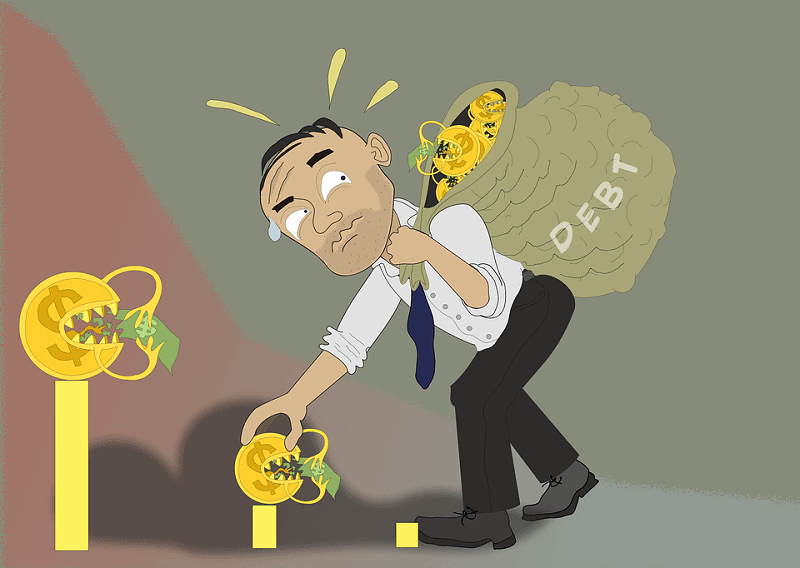
An old story tells that almost all important brands begun as startups. Is it really true?
By Gorica Gligorijevic
Startups and corporate venture capital are yet underestimated and discredited category. The entrepreneurs are broadly seen as capricious and attached with dishonest strings. In some people’s minds, startups take the money and have protection from a powerful partner.
Is it true in real life?
Some researches show that corporates are becoming more skilled at working with startups. It is a kind of out-sourcing. The fact is, big companies invested more than $50 billion last year into startups. The year before their investment was about $36 billion.
It’s similar to Europe. You can read about very powerful companies like Bosh or Daimler that investing in innovative startups. The point is to stay in the game and it is easier to financially support some small startup than to develop the whole new section inside the corporation.
Many big companies began as startups
For example, Lyft is one of those startups, also Monzo, Bolt, etc. You just have to look at the giant’s investment portfolios.
But, it isn’t the main subject. It is good to have such big corporations ready to invest in venture capital. The problem is if you are an entrepreneur, which company is ready to invest in your business, what is their interest, how to contact them. If you want to invest in Europe you will need some valuable information. So, Traders-Paradise recommends Dealroom, where you can find fantastic data.
We will present you with the list of three but with the promise that we will update.
Robert Bosch Venture Capital
Its headquarters are in Stuttgart, Germany. As the sub-organization of Robert Bosch, it is normal that engineering technology is their focus. Its investments in AutoAI, Actility, Movidius, etc are well-known. With offices in Stuttgart, Frankfurt (both Germany) and Tel Aviv, Shanghai, and Sunnyvale in California, US we can say it covers almost all continents.
The company says about itself:
“With offices in Europe, Silicon Valley, China, and Israel, we are working with Deep-tech companies worldwide. Having our investment sweet spot at an early stage we are also looking into later-stage companies, as well as seed-stage in selected cases. We prefer to syndicate our investments with existing or new investors in the company and can take the lead, co-lead or follow as necessary. Beyond the financial commitment, startups receive access to our vast network and support in commercial collaborations. Up to EUR 15m per company for 5-25%, Equity Position and 100% Commitment”
When they are investing in startups and venture capital their focus is on AI/Deep Learning, IoT, Distributed Ledgers, Analytics, Next Generation Computer Architecture, AR / VR, Mobility Solutions, Autonomous Driving, as we found on their website.
Novartis Ventures is one of the startups
Their headquarters are in Basel, Switzerland and they operate as sub-organization of Novartis, a multinational pharmaceutical company also based in Basel. They already have been invested in Nabriva Therapeutics, Proteus Digital Health, Galera Therapeutics, etc.
The essence of their investment strategy we found on their website:
“Our primary focus is on the development of novel therapeutics and platforms. In our investments, we look for unmet needs and clinical impact, novel proprietary science, and understanding of the mechanism, management, and board experience and capital efficiency in the program. Foster innovation, drive significant patient benefit and generate superior returns by creating and investing in innovative life science companies. NVF is stage agnostic, engaging in investments from seed- to later-stage life sciences companies across Biotechnology/Biopharma. NVF manages over $800m in committed capital and more than 40 portfolio companies across North America, Europe, Israel, and Asia/Pacific. We invest in North America, Europe, Israel, and Asia/Pacific with approximately USD 800 million under management in committed capital and more than 40 portfolio companies. We continue our strategy of making larger focused investments and anticipate total investments up to USD 30 million per company over its life. We make equity investments in Biotechnology/Biopharma life sciences companies. NVF is stage agnostic and engages in seed investments as well as later-stage investments. We typically lead or co-lead an investment and play an active role on company boards.”
So, you can see that health is their focus while investing in startups.
Swisscom Ventures
With headquarters in Zurich, Switzerland operates as a sub-organization of Swisscom. Their business focus is on communications. Since now, they have already invested in startups like SimpliVity, Symetis, Quantenna Communications.
What they say about their investment strategy Traders-Paradise found on their official website:
“We are investing in Swiss and global technologies to foster digital transformation. More than 40,000 new companies are set up in Switzerland every year. We look in particular at the Swiss high-tech companies and University Spin-offs as they are fundamental contributors to the economic growth and innovation of Switzerland. We are typically leading or co-leading financing rounds from the early beginning and also take board seats. As a strategic investor, we offer entrepreneurs to access a broad range of portfolio services in addition to financial support. Those comprise the use of Swisscom’s technical infrastructure but also access to market channels and key experts in the lines of Business.”
They say about their investment focus:
“Artificial Intelligence – Digital applications utilizing artificial intelligence technologies and that are deployable across various industry sectors including data-driven internet services
Cybersecurity – Advanced applications and tools to protect the integrity of networks, programs and data from attack, damage or unauthorized access
Telecom and IT Infrastructure – Next-generation IT and cloud technologies that constitute the backbone and underlying enabler to the digital transformation comprising software, hardware, and services”
How to start up your own bussines
Just take a look at the list of supported startups and you will see how good is to have the strong arms behind you when starting your own business. Sometimes it looks really hard to find an investor to give life to your good idea. But, did you try? How many contacts you have? On how many doors were you knocked?
Just don’t sit in your room and don’t cry how nobody understands you.
Take the initiative. Be proactive! And have confidence in your abilities. Who never try, never knows. Try! And the door will open to you. Find an investor!
Traders-Paradise will update the valuable information of this kind.


















 If you have no other option you’ll take a bad credit loan. But it isn’t the end of the world.
If you have no other option you’ll take a bad credit loan. But it isn’t the end of the world.






